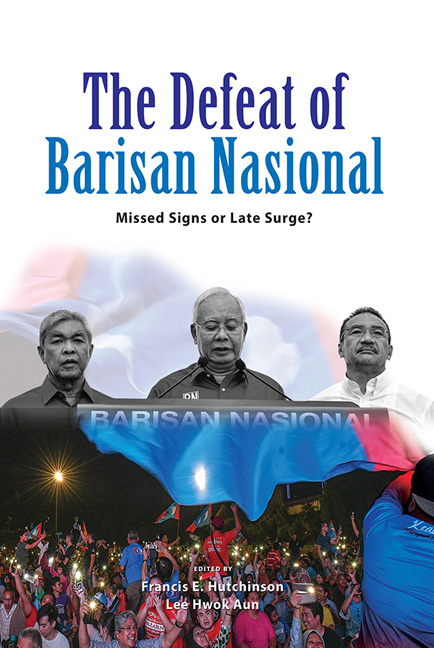3 - Winning Elections by Rigging Borders? Barisan Nasional’s Brazen, and Failed, Attempt
Published online by Cambridge University Press: 17 April 2020
Summary
INTRODUCTION
Redelineation has often been used as a tool by the former ruling coalition, Barisan Nasional (BN), to hold on to power. Past analyses observed that, by increasing the number of constituencies and redrawing their borders, redelineation exercises have boosted the former ruling coalition's electoral performance, most notably in the general elections of 1974, 1986, 1995 and 2004.
During Malaysia's 2016–18 redelineation exercise, the Election Commission (EC)—the organization tasked with carrying out this exercise—provided many illustrations of unfair practice and violation of constitutional norms, clearly with a view to provide electoral advantage to BN.
Unlike its antecedents, the 2016–18 redelineation exercise did not involve increasing the number of parliamentary or state seats. However, the review had long-reaching implications. First, it left malapportionment, which disproportionately favours small, rural, and Malay-majority constituencies, unaddressed. Second, the exercise extensively gerrymandered parliamentary and state constituencies with the aim of increasing the share of registered Malay voters in select seats, as well as concentrating non-Malay voters in a number of oversized constituencies.
While these changes further tipped the “playing field” towards BN and were expected to increase the incumbent's share of parliamentary seats, their intended effect in the 2018 general election was underwhelming. The redrawn borders delivered just one additional seat to BN and could not stop Pakatan Harapan (PH) from forming a supermajority in the Legislative Assembly of Selangor—the most aggressively gerrymandered state. However, while the 2016–18 redelineation exercise did not alter the outcome of the 14th General Elections (GE-14), the misdeeds of the EC and BN members of parliament must not be overlooked.
The chapter seeks to identify what electoral violations were committed and analyse why these did not have the expected outcome. The chapter comprises five sections. Following this introduction, the second section will examine the principles of redelineation according to the Malaysian Constitution. The subsequent section will review the history and implementation of redelineation exercises in Malaysia in order to see what advantages the exercises have provided to BN at the parliamentary and state levels. The fourth section will assess changes introduced since GE-13 and in the run-up to GE-14, seeking to understand why this round of border-rigging did not deliver as before. The final section will conclude.
- Type
- Chapter
- Information
- The Defeat of Barisan NasionalMissed Signs or Late Surge?, pp. 49 - 84Publisher: ISEAS–Yusof Ishak InstitutePrint publication year: 2019

